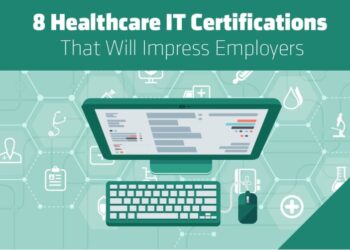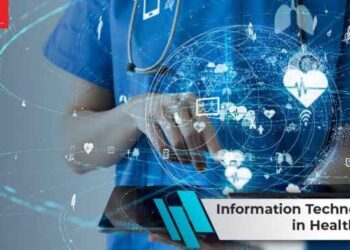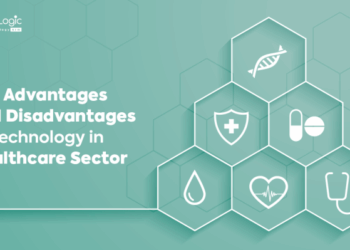Why Health Information Technology Is the Future of Digital Healthcare sets the stage for this enthralling narrative, offering readers a glimpse into a story that is rich in detail and brimming with originality.
It explores the transformative role of health information technology in healthcare, the latest trends and innovations, challenges faced, and the exciting future possibilities that lie ahead.
Importance of Health Information Technology in Digital Healthcare
Health Information Technology (HIT) plays a crucial role in revolutionizing the healthcare industry by leveraging technology to improve patient care, streamline processes, and enhance overall outcomes.
Transforming Healthcare Industry
Health Information Technology has the potential to transform the healthcare industry by enabling seamless communication between healthcare providers, patients, and other stakeholders. This digital transformation allows for more efficient care delivery, accurate diagnosis, and personalized treatment plans.
Improving Patient Care and Outcomes
- Remote Monitoring: Digital health technologies like wearables and mobile apps enable remote monitoring of patients, allowing healthcare providers to track vital signs and health metrics in real-time.
- Telemedicine: Telehealth services facilitate virtual consultations and remote diagnosis, increasing access to healthcare for patients in remote areas or with limited mobility.
- Predictive Analytics: Health Information Technology utilizes data analytics to predict health trends and identify potential risks, enabling proactive interventions and preventive care.
Benefits of Integrating Technology into Healthcare Systems
- Efficiency: Electronic Health Records (EHRs) streamline administrative tasks, reduce paperwork, and enhance the coordination of care among healthcare providers.
- Patient Engagement: Digital tools empower patients to actively participate in their healthcare journey, access educational resources, and communicate with their providers more effectively.
- Quality of Care: Health Information Technology promotes evidence-based practices, standardized treatment protocols, and decision support tools to ensure high-quality care delivery.
Advancements in Health Information Technology
Health Information Technology (HIT) is rapidly evolving, bringing forth a wave of innovations and trends that are reshaping the landscape of digital healthcare. Let's delve into the latest advancements in this field.
Artificial Intelligence in Digital Healthcare
Artificial Intelligence (AI) is playing a transformative role in revolutionizing digital healthcare. AI algorithms can analyze complex medical data at a rapid pace, leading to improved diagnostics, personalized treatment plans, and predictive analytics. With AI-powered tools, healthcare providers can make informed decisions, enhance patient outcomes, and streamline processes.
Telemedicine's Impact on Healthcare
Telemedicine has emerged as a game-changer in healthcare delivery, especially in remote or underserved areas. Through telemedicine platforms, patients can consult with healthcare providers virtually, access medical advice, receive prescriptions, and even monitor chronic conditions from the comfort of their homes.
This not only improves access to care but also reduces healthcare costs and enhances patient convenience.
Wearable Devices in Healthcare Monitoring
The rise of wearable devices, such as fitness trackers, smartwatches, and health monitoring gadgets, has transformed the way individuals track and manage their health. These devices can collect real-time data on vital signs, physical activity, sleep patterns, and more, providing valuable insights into one's health status.
By integrating wearable technology with health information systems, healthcare professionals can gain a comprehensive view of a patient's health and offer personalized care.
Challenges and Solutions in Implementing Health Information Technology
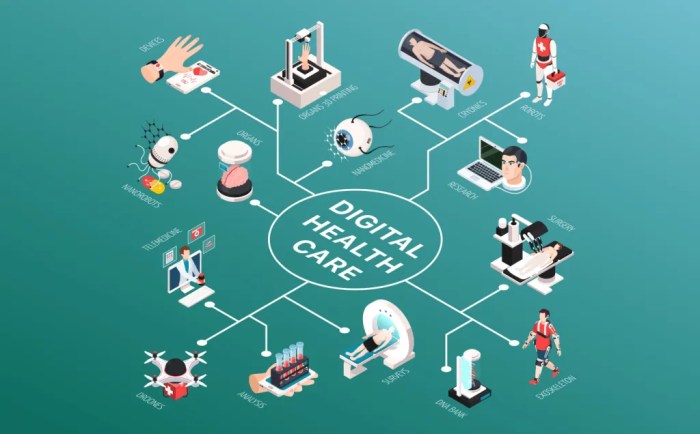
Implementing Health Information Technology (HIT) in the healthcare sector comes with its own set of challenges. However, with careful planning and effective strategies, these obstacles can be overcome to ensure successful adoption and integration of digital health solutions.
Common Challenges Faced in Implementing Health Information Technology
- Lack of interoperability between different systems and software platforms, hindering seamless data exchange.
- Resistance to change among healthcare providers and staff due to unfamiliarity with new technologies.
- Financial constraints for smaller healthcare facilities to invest in and maintain HIT infrastructure.
- Concerns about data security and privacy, especially with the increasing threat of cyberattacks.
Strategies to Overcome Barriers to Adopting Digital Health Solutions
- Provide comprehensive training and support to healthcare professionals to increase their comfort and proficiency with new technologies.
- Incentivize the adoption of HIT through government funding, grants, and reimbursement programs.
- Encourage collaboration and standardization among healthcare organizations to improve interoperability.
- Implement robust data security measures, such as encryption, access controls, and regular audits, to safeguard patient information.
The Importance of Data Security and Privacy in Health Information Systems
Ensuring the security and privacy of healthcare data is paramount in the digital age. With sensitive patient information stored electronically, healthcare organizations must prioritize data protection to maintain patient trust and compliance with regulations like HIPAA. Implementing strong cybersecurity measures and regular risk assessments can help mitigate the risk of data breaches and unauthorized access, safeguarding the integrity and confidentiality of health information.
Future Possibilities of Health Information Technology
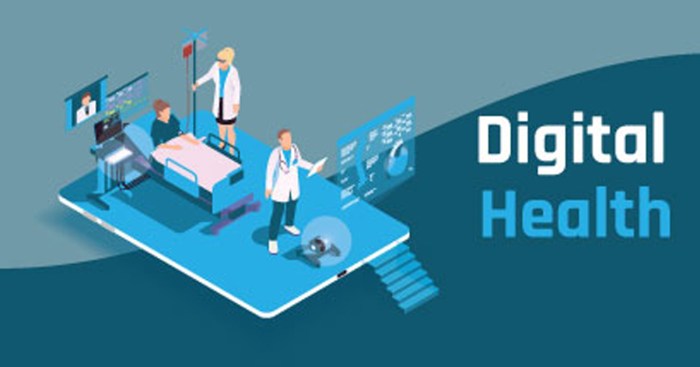
As technology continues to advance, the future of digital healthcare holds exciting possibilities with the integration of Health Information Technology (HIT). Let's explore some of the upcoming trends that are set to revolutionize the healthcare industry.
Predictive Analytics and Big Data
The use of predictive analytics and big data in healthcare has the potential to transform patient care by enabling healthcare providers to anticipate health issues before they arise. By analyzing large datasets, healthcare professionals can identify patterns and trends, allowing for more personalized and proactive treatment plans.
Virtual Reality and Augmented Reality
Virtual reality (VR) and augmented reality (AR) are not just for gaming and entertainment; they also have significant applications in healthcare. These technologies can enhance patient experiences by providing immersive environments for therapy, training, and even surgical procedures. VR and AR have the potential to revolutionize medical education and patient engagement.
Personalized Medicine
Health Information Technology is paving the way for personalized medicine, where treatments are tailored to individual patients based on their genetic makeup, lifestyle, and medical history. Through the use of electronic health records and genetic testing, healthcare providers can deliver more precise and effective treatments, ultimately improving patient outcomes.
Last Point
In conclusion, Why Health Information Technology Is the Future of Digital Healthcare encapsulates the dynamic landscape of digital healthcare, paving the way for advancements that promise to revolutionize patient care and outcomes.
Expert Answers
What are some examples of how digital health technologies improve patient care?
Digital health technologies such as remote monitoring devices and telehealth services enable better patient engagement and access to care, leading to improved outcomes.
What are common challenges faced in implementing health information technology?
Common challenges include issues with interoperability, resistance to change from healthcare providers, and concerns about data security and privacy.
How can barriers to adopting digital health solutions be overcome?
Barriers can be overcome through proper training for staff, ensuring user-friendly interfaces, and addressing concerns about data security through robust encryption protocols.
How is personalized medicine evolving through health information technology?
Personalized medicine is evolving through the use of genetic information and predictive analytics to tailor treatments to individual patients, improving efficacy and reducing adverse effects.

